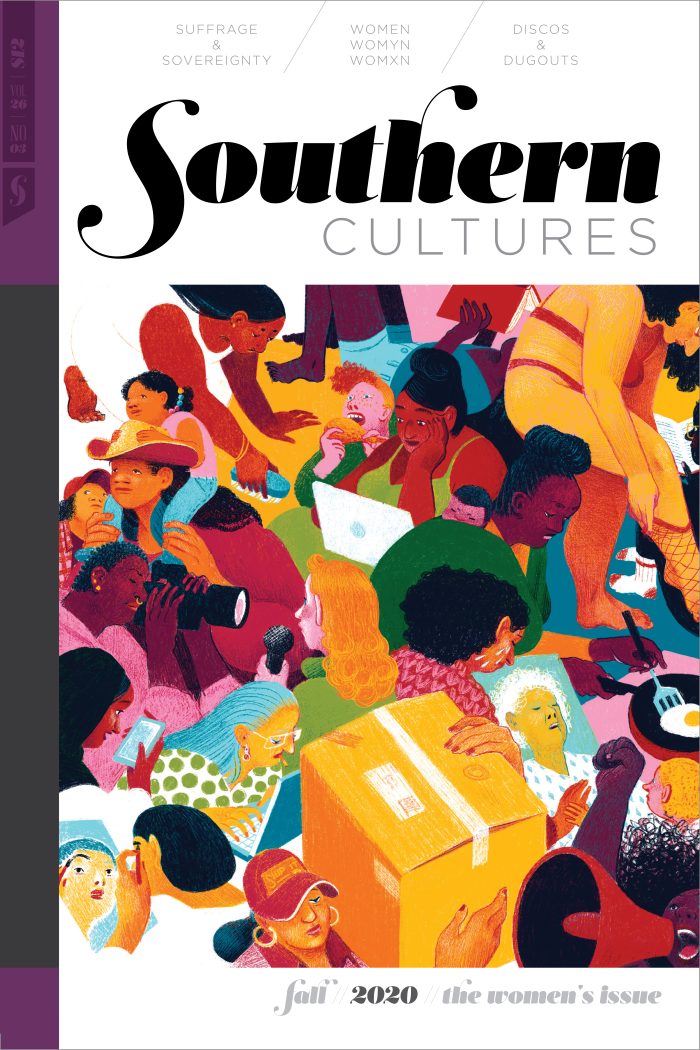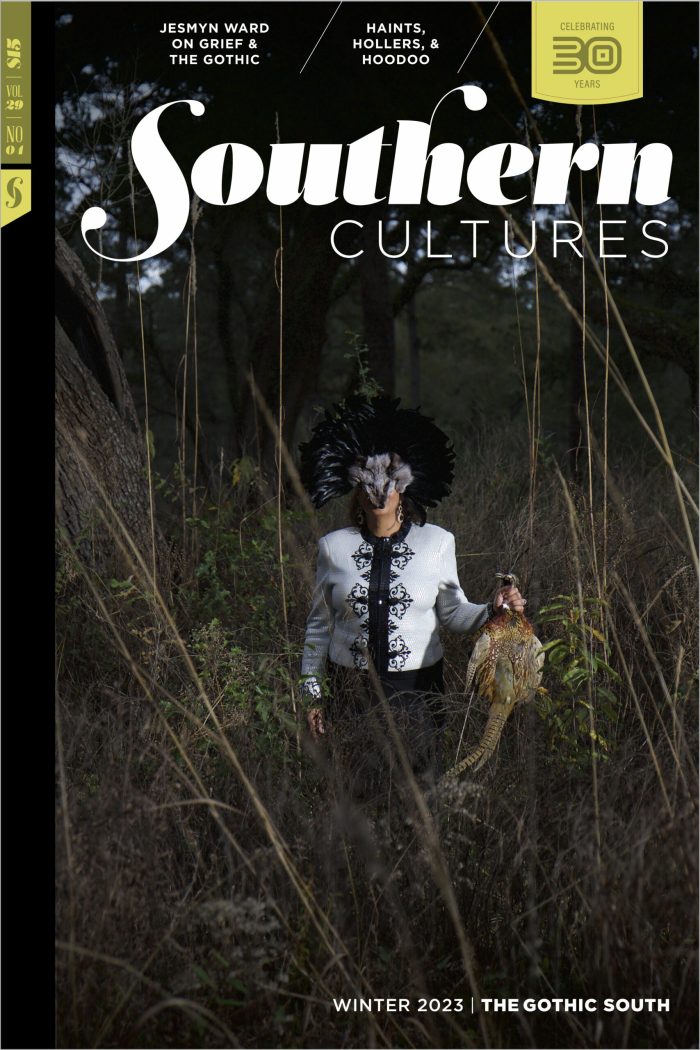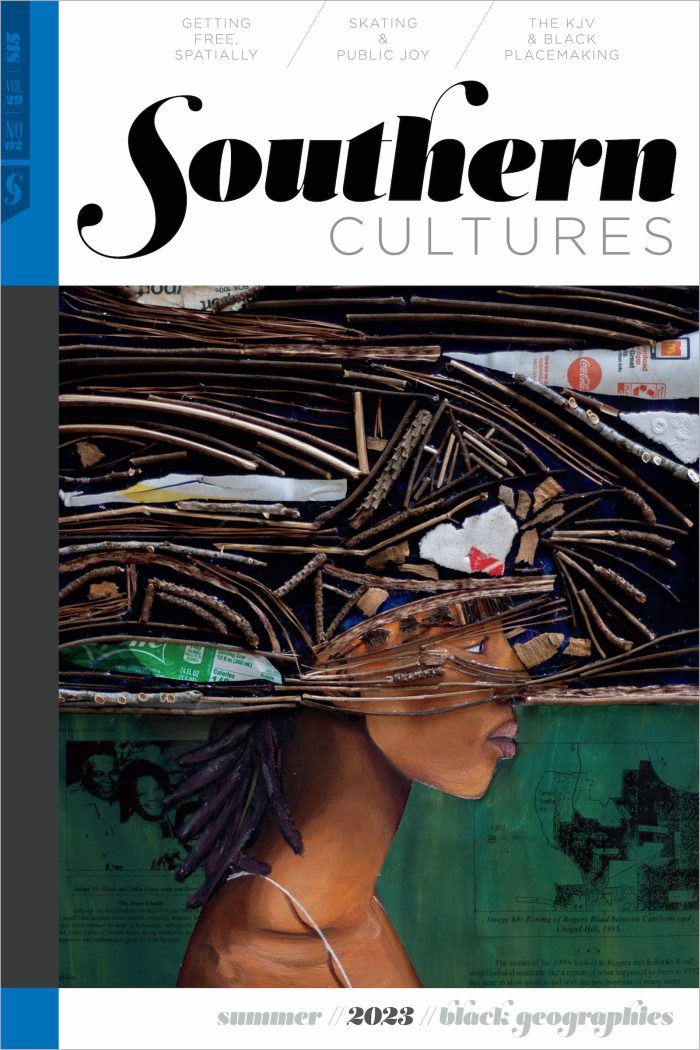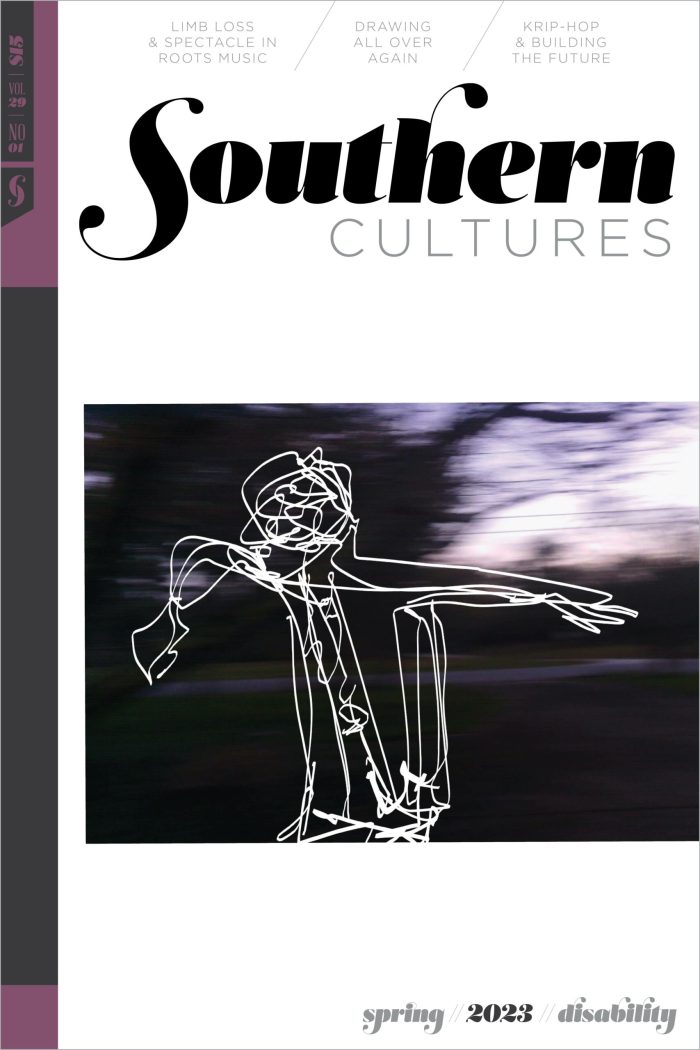Essay
BUY ACCESS
by Marcie Cohen Ferris
“As we witness their labor and listen to the rising voices of women, we see resolute strength, vigilance, outrage, art, and agency.” On the occasion of this special issue focused on women—thanks to our whip-smart guest editor, historian Jessica Wilkerson—I am grateful for the virtual women’s community I access online in these continued months of »
Essay
by Jessica Wilkerson
I don’t know when exactly I learned that Tennessee was the deciding vote to ratify the Nineteenth Amendment of the US Constitution, the suffrage amendment that expanded women’s access to the ballot box. I think this history entered my consciousness in August 2006 when I saw a group of mostly white women in period attire—long »
Essay
Ida B. Wells-Barnett and Black Political Culture in Reconstruction-Era Mississippi
by Beth Kruse,
Rhondalyn K. Peairs,
Jodi Skipper,
Shennette Garrett-Scott
“Senior year, be good to me!” announced Mahoghany Jordan, a fourth-year general studies major at the University of Mississippi (UM), in a September 17, 2018 Facebook post. In the two images accompanying her post, an exuberant Jordan poses in the Square, the central business and entertainment hub of Oxford, Mississippi, home of the UM campus. »
Essay
BUY ACCESS
Violence, Violation, and Black Women’s Struggles for Civil Rights
by Adriane Lentz-Smith
“Much changed over the course of the freedom struggle in how African Americans pursued rights and how segregationists defended white democracy, but sexual violence remained central to asserting white power.” On August 26, 1965, Henrietta Wright drove to the Winona, Mississippi courthouse and registered to vote. A few hours later, she was facing the barrel »
Photo Essay
BUY ACCESS
by Andrea Morales
“The boundaries of traditional documentary tend to encourage a certain rigid empathy. When I was learning, it seemed like an emotional calculus I would never master.” While writing this from an isolation spurred by a novel corona-virus pandemic, I’m stressed for a million reasons. One is that I’m at my home in Mississippi when I »
Essay
The Atlanta Lesbian Feminist Alliance, 1972–1975
by Rachel Gelfand
In the heat of an Atlanta summer evening, the ALFA Omegas softball team took the field at Iverson Park. As an out-lesbian team organized by the Atlanta Lesbian Feminist Alliance (ALFA), they were different from other softball lineups in the City League in 1974. The Omegas brought together ALFA members at varying skill levels—neophytes and »
Essay
Southern Women Writers’ Great Migrations
by Keira V. Williams
Zora Neale Hurston, Margaret Walker, Flannery O’Connor, Beth Henley, Alice Walker, Mary Karr, Jesmyn Ward. Women writers in every generation have left southern states in search of opportunities and in defiance of racial, economic, sexual, and gender-based oppression. Within the decades-long Great Migration of African Americans out of the region (and now back into it), »
Essay
BUY ACCESS
by Gregory Samantha Rosenthal
“Womanhood—how people experience being women—is an expansive historical category that includes more than just women.” Greta lingered just outside the downward-slanting entrance of the old warehouse on the edge of downtown Roanoke. A few decades earlier, this building was home to a restaurant equipment supply company, but by 1976 deindustrialization and suburbanization had taken hold »
Interview
BUY ACCESS
by Maggie Loredo,
Perla M. Guerrero
“I wasn’t aware that I was an undocumented person. And also wasn’t aware that all those people were undocumented. I just knew that they didn’t speak English and they needed support.” Maggie Loredo, an immigrant rights activist and a returnee to Mexico, speaks with Latinx studies scholar Perla M. Guerrero. In this conversation, we learn »
Interview
The Day Rep. Renitta Shannon Wouldn’t Sit Down for Georgia’s Abortion Ban
by Cynthia R. Greenlee,
Renitta Shannon
First things first: Representative Renitta Shannon, who represents Georgia’s 84th district in the state’s legislature, was raised a PK—a preacher’s kid. In her father’s Primitive Baptist church—one so doggedly literal that it frowned upon 11 a.m. Sunday communion because the practice debuted at the Last Supper, that world-changing evening meal—she absorbed and sometimes questioned the »
Interview
BUY ACCESS
NC2020 and the Commemoration of Women’s Suffrage
by Jennifer Standish,
Calissa Vicenta Andersen,
Siani Antoine,
Flannery Fitch,
Kyende Kinoti
“I don’t think this is political, I think this is fact—we need to highlight that the struggle isn’t over.” From spring 2019 to spring 2020, the Southern Oral History Program undergraduate internship focused its study on the history of women’s suffrage in the United States. In anticipation of the Nineteenth Amendment’s centennial, interns interviewed members »
Essay
An Alumna Contemplates Pauli Murray Hall
by Hilary N. Green
Written one year after being denied admission to graduate school at UNC, Pauli Murray mourned the defeat dealt in her desegregation efforts by the Jim Crow–era campus oppressors. She grieved the “what ifs” of an inclusive Chapel Hill campus community but expressed a fortitude necessary for perseverance. Seventeen years later, she witnessed from afar the »
Poetry
Resistance Poetry
by Crystal Simone Smith,
Sheila Smith McKoy
Crystal Simone Smith’s haiku is infused with a profound love for and appreciation of the natural world. As one of a growing community of Black haiku poets, Smith’s work is also that of an activist, born from her life as a Black woman and mother of two Black sons. Her words resonate as much-needed interventions »





